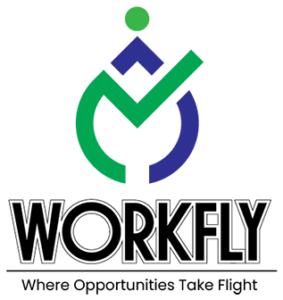Recruitment has become a strategic function within organizations. The rise of technology and digital transformation has led to the creation of two unique recruitment paradigms: IT (or technical) recruitment and non-IT recruitment.
IT recruitment focuses on sourcing talent for roles that require deep technical knowledge, ranging from software development and cybersecurity to data analytics while non-IT recruitment covers roles across diverse industries such as finance, healthcare, marketing, and more.
Understanding the difference between technical and non technical jobs is vital for recruiters. For example, while IT roles demand proficiency in programming languages and cloud computing, non-IT jobs may require strong communication skills, industry-specific expertise, and an alignment with organizational culture.
Defining IT and Non-IT Recruitment
IT Recruitment
IT recruitment is a specialized field that focuses on hiring professionals with technical acumen. These roles are generally aligned with disciplines such as software engineering, network administration, cybersecurity, data analytics, and cloud computing.
Recruiters in this domain are expected to understand technical jargon, assess coding abilities, and evaluate candidates’ familiarity with rapidly evolving technologies.
- Core Competencies: Technical screening, familiarity with programming languages (e.g., Java, Python, C++), understanding of system architectures, and proficiency with digital tools.
- Challenges: High competition for niche skills, rapid technological change, and the need for technical recruiters to possess a minimum level of industry knowledge.
Non-IT Recruitment
Non-IT recruitment spans a broad range of industries such as finance, healthcare, education, marketing, and more. This field is less about technical skills and more about industry-specific competencies, soft skills, and cultural fit. For example, non-IT roles might include positions in sales, human resources, operations, and customer service, areas where interpersonal communication, leadership, and problem-solving play a major role.
- Core Competencies: Industry-specific knowledge, soft skills assessment, cultural fit, and behavioral interviewing techniques.
- Challenges: Greater diversity in job functions and candidate backgrounds, which requires a nuanced understanding of different industry demands and expectations.
Key Differences Between IT and Non-IT Recruitment
While both recruitment types share the ultimate goal of finding the right talent, several critical differences set them apart:
1. Skill Set and Expertise
- IT Recruitment: The focus is on highly specialized technical skills. Recruiters must evaluate candidates based on their ability to code, manage complex systems, and innovate using new technologies. Tools such as coding challenges, technical tests, and real-world problem-solving sessions are common in the IT hiring process.
- Non-IT Recruitment:
- The emphasis is on soft skills and industry-specific experience. In roles such as marketing or finance, recruiters look for strong communication, analytical thinking, and interpersonal abilities rather than a technical coding skillset.
- This forms the basis of understanding the difference between technical and non technical jobs, where technical roles require precise hard skills, and non-technical roles prioritize behavioral attributes.
2. Recruitment Processes and Evaluation
- IT Recruitment:
The process often involves multiple rounds of technical assessments, coding tests, and hands-on evaluations. Interviewers probe candidates on practical experiences, previous projects, and their understanding of emerging technologies. The detailed technical criteria help in ensuring that candidates not only have theoretical knowledge but also practical expertise. - Non-IT Recruitment:
Recruitment processes here lean more toward behavioral interviews, situational judgment tests, and case studies. The evaluation criteria are tailored to gauge communication skills, cultural fit, leadership, and adaptability. Candidates are often assessed on how well they align with the company’s mission and values.
3. Sourcing Channels
- IT Recruitment:
Specialized platforms and technical communities such as GitHub, Stack Overflow, and niche job boards are popular sourcing channels. Recruiters often leverage social networks where technical professionals showcase their work and contribute to open-source projects. - Non-IT Recruitment:
The candidate pool is typically broader, with sourcing taking place on general job boards, LinkedIn, industry-specific portals, and even local networking events. This diversity in channels reflects the broader nature of roles under non-IT recruitment.
4. Salary and Compensation Structures
- IT Roles:
Given the high demand for specialized technical talent, IT roles often offer competitive salaries and comprehensive benefits packages. Compensation might include bonuses for certifications, training stipends, and options for remote work. This competitive package is essential to attract and retain top IT talent. - Non-IT Roles:
Compensation structures in non-IT recruitment tend to vary widely depending on the industry, role, and geographic location. Packages might include performance incentives, professional development opportunities, flexible work arrangements, and benefits that emphasize work-life balance.
5. Challenges in the Recruitment Landscape
IT Recruitment Challenges:
- Talent Scarcity: The rapid evolution of technology means that highly skilled IT professionals are often in short supply.
- Technical Assessment Limitations: Standardized tests might not fully capture practical abilities or the candidate’s adaptability to new technologies.
- High Competition: Multiple companies frequently compete for the same talent pool, driving up salary expectations and prolonging hiring times.
Non-IT Recruitment Challenges:
- Cultural Fit and Soft Skills Evaluation: Ensuring candidates align with the company’s culture can be challenging, especially when the role is less technical.
- High Turnover: In some sectors, non-IT roles face higher attrition rates, necessitating continuous recruitment efforts.
- Broad Candidate Base: With a larger pool of applicants, filtering for the right candidate requires robust evaluation strategies.
Best Practices for IT Recruitment
Recruiting top IT talent requires a strategic and well-informed approach. Here are some best practices to consider:
Leverage Specialized Job Platforms and Communities
- Technical Communities: Platforms like GitHub, Stack Overflow, and coding hackathons are invaluable for sourcing active technical talent.
- AI-Driven Tools: Tools such as those provided by AmazingHiring help aggregate candidate data from multiple sources, streamlining the sourcing process.
Adopt Rigorous Assessment Techniques
- Technical Tests and Coding Challenges: Integrate practical assessments into the interview process to evaluate candidates’ problem-solving skills and technical proficiency.
- Panel Interviews: Involve subject matter experts in the interview process to ensure a comprehensive evaluation of technical abilities.
- Continuous Feedback Loops: Encourage collaboration between recruiters and hiring managers to refine assessment techniques over time.
Offer Competitive Compensation and Benefits
- Market Research: Regularly benchmark salaries and benefits to ensure your offers are competitive within the industry.
- Growth Opportunities: Highlight opportunities for professional development, certification programs, and career progression. This can be a compelling incentive for IT professionals who value continual learning and advancement.
Best Practices for Non-IT Recruitment
Non-IT recruitment calls for strategies that emphasize interpersonal skills, cultural fit, and industry-specific knowledge:
Focus on Behavioral and Situational Interviewing
- Soft Skills Assessment: Develop interview frameworks that emphasize communication, problem-solving, and adaptability. Behavioral questions and scenario-based exercises can reveal much about a candidate’s potential cultural fit.
- Customized Evaluation: Tailor interview processes to reflect the unique requirements of the role, ensuring that candidates are evaluated on both their technical knowledge (if any) and their interpersonal competencies.
Broaden Your Talent Pipeline
- Diverse Sourcing Channels: Utilize a mix of job boards, social media platforms, and industry-specific networks. This approach not only widens the candidate pool but also caters to the broad range of roles encompassed by non-IT recruitment.
- Employee Referral Programs: Encourage current employees to refer candidates. Referrals often result in higher cultural alignment and longer retention rates.
- Branding and Employer Value Proposition (EVP): Invest in a strong employer brand that resonates with potential candidates, emphasizing work-life balance, career growth, and company culture.
Leverage Technology and Data-Driven Insights
- Applicant Tracking Systems (ATS): Use robust ATS platforms to streamline the recruitment process, manage candidate pipelines, and gather data for continuous improvement.
- Analytics: Employ data analytics to track key performance metrics such as time-to-hire, candidate engagement rates, and quality of hire. These insights can help refine recruitment strategies over time.
- Social Media Engagement: Utilize platforms like LinkedIn and industry-specific forums to engage with potential candidates and build lasting relationships.
The Role of Recruiters: IT vs Non-IT Specialists
An important aspect of understanding the difference between it and non it recruitment lies in the role and expertise of the recruiters themselves.
Technical Recruiters
- Specialized Knowledge: Technical recruiters must have a deep understanding of IT terminologies, coding practices, and the nuances of various technical roles. Their ability to assess and engage candidates is directly linked to their technical expertise.
- Focused Evaluation: They often conduct technical interviews, collaborate closely with IT managers, and use specialized assessment tools to ensure candidates meet stringent technical requirements.
General Recruiters
- Broad Skill Sets: General recruiters, on the other hand, are adept at managing diverse hiring processes across multiple industries. Their role is to evaluate candidates based on soft skills, cultural fit, and industry-specific knowledge.
- Versatile Approaches: While they may not have deep technical knowledge, their strength lies in adaptability and their ability to source candidates for roles where technical skills are not the primary requirement.
Understanding this difference between technical and non technical jobs underscores the necessity for organizations to choose the right recruitment expert for each role. Whether it is for IT or non-IT positions, the recruiter’s expertise significantly influences the hiring outcome.
Case Studies
Many organizations have successfully navigated the complexities of IT and non-IT recruitment by adopting tailored strategies:
Case Study – Tech Startup: InnoTech Solutions
InnoTech Solutions, a technology startup based in Silicon Valley, leveraged specialized technical recruiters to build its development team. By implementing coding challenges, engaging in targeted outreach on platforms such as GitHub, and forging partnerships with tech communities, InnoTech Solutions reduced its time-to-hire by 25% while ensuring that every candidate met rigorous technical standards. Their approach exemplifies how a focused, data-driven recruitment strategy can efficiently secure top IT talent.
Case Study – Financial Services: FinTrust Bank
FinTrust Bank, a prominent financial institution, revamped its non-IT recruitment strategy by enhancing its employer brand and incorporating comprehensive behavioral assessments. With a renewed focus on evaluating soft skills, cultural fit, and industry-specific knowledge, FinTrust Bank experienced a marginal improvement in employee retention and overall candidate satisfaction. This case illustrates the impact of a well-tailored non-IT recruitment process on reducing early turnover rates and aligning hires with long-term organizational goals.
Conclusion
The difference between IT and Non IT recruitment extends beyond just the specific skills required, it encompasses a whole spectrum of tailored strategies, tools, and processes. For IT roles, this means deploying highly specialized assessment techniques, leveraging niche sourcing channels, and offering competitive, technically focused compensation packages. In contrast, non-IT recruitment hinges on evaluating soft skills, cultural fit, and industry-specific competencies to ensure a broader but well-suited candidate selection.
Looking ahead, recruitment will evolve further with advancements in AI, data analytics, and integrated hiring platforms. WorkFly stands out by offering:
- Comprehensive Placement Assistance: They connect job seekers with top opportunities across IT, MIDC, and various other sectors through a streamlined, data-driven approach.
- Expert Career Guidance: With services including HR counseling, resume-building support, and mock interviews, we ensure candidates are well-prepared to meet industry demands.
- Strong Employer Partnerships: By maintaining a robust network of top companies including well-known multinational corporations,we bridge the gap between skilled candidates and employers looking for the perfect match.
- Customized Recruitment Solutions: Our tailored services for both job seekers and businesses demonstrate a commitment to addressing the unique challenges of both IT and non-IT recruitment, making them an ideal partner in today’s competitive hiring landscape.


